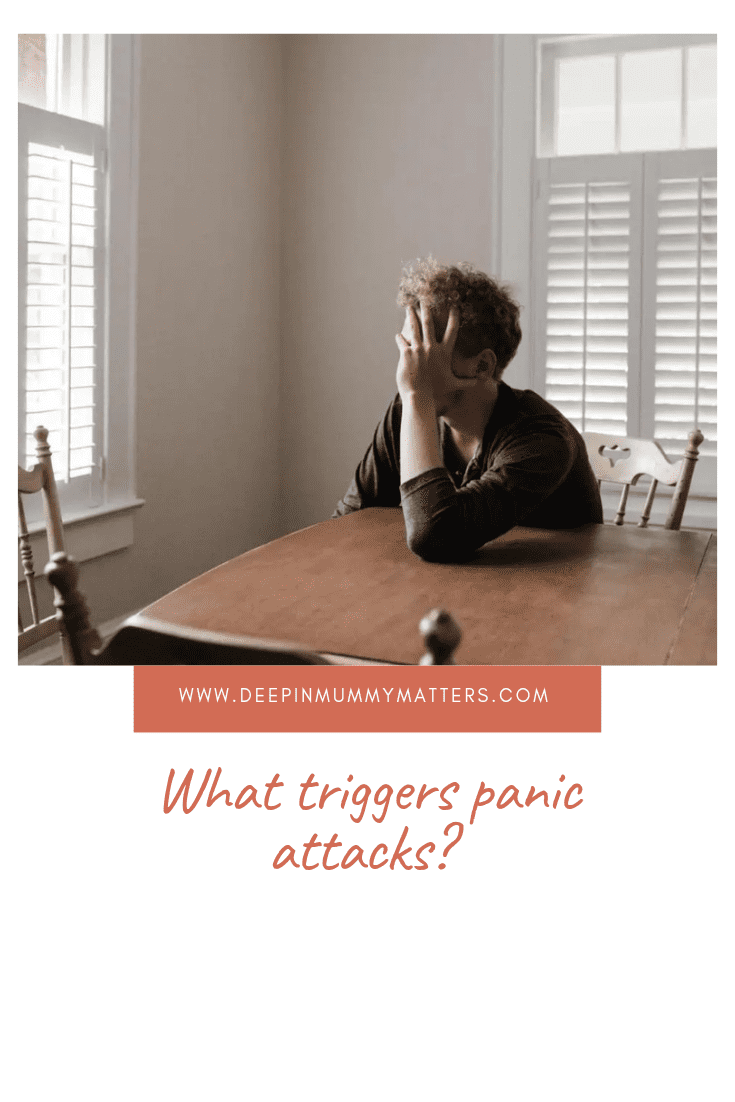Panic attacks can be extremely uncomfortable for anyone due to their potentially alarming and disabling symptoms. These symptoms not only interfere with the normal functioning of the body temporarily but can also take a heavy toll on your physical and emotional health in the long run. To avoid these incapacitating symptoms, the key is to minimize experiencing panic attacks by identifying the triggers and avoiding them altogether.

This article will explore different triggers that commonly trigger panic attacks so that timely efforts can be made to control them before the problem takes over your mental health.
Panic Attack – An Overview
A panic attack refers to feelings of immense fear without any apparent threat or danger. Touted as an indicator of stress, it occurs as the anxiety levels peak in an individual. The whole experience can be scary and fear-provoking, and while it’s different for everyone, it may include the following symptoms:
- Shaking
- Hyperventilating
- Sweating
- Crying
- Feeling like something awful is going to happen
Keep in mind that panic attacks are not immediately dangerous or life-threatening, no matter how frightening they seem. However, they certainly carry the potential to reduce your quality of life and cause undue stress. Therefore, it is essential to avoid these episodes as much as possible, and the best way to do so is by identifying and preventing the triggers.
What Triggers Panic Attacks – Exploring the Common Set-Offs
Because of the significant impact of repeated panic attacks on the quality of life and emotional health, it is imperative to seek treatment for it right away. An important part of the treatment is the identification of the triggers that set off these attacks so that they can be prevented in due time.
Mentioned below are some common set-offs for a panic attack.
1. Excessive Stress
High stress levels are undoubtedly the number one and the most crucial trigger for recurring panic attacks. Even the most minor daily stressors, like missing a train or getting caught up in a traffic jam, can stress you. Once this stress becomes unbearable, it translates into a panic attack.
If you feel like stress is a trigger for you, learning healthy coping mechanisms with the help of a counsellor or a therapist is suggested.
2. Public Events
Public speaking is yet another major trigger for anxiety and panic attacks. Participating in a competition, talking to your employer, reading aloud in front of your class, or being surrounded by large groups of people can give you enough anxiety to trigger a panic attack.
To manage the fear of social events, positive reinforcements from friends, family, and therapists can help.
3. Health Problems
Be it a recently diagnosed illness or a long-term issue, sickness can be stressful, sleeping disorders and upsetting. Depending on your exact diagnosis and how it’s affecting you, you may start worrying about different aspects of life, such as being healthy enough to continue working or thinking about your family in case something happens to you.
A positive diagnosis can easily trigger repeated panic attacks in many and require psychiatric help in addition to medical treatment.
4. Caffeine
As important as coffee is to kickstart the morning, it can be an important trigger for anxiety and panic attacks. Caffeine, the active ingredient of coffee, is well-known to increase heart rate and alertness, and while most people are able to put these effects to good use, others can experience shakiness and a full-blown panic attack.
Cutting back on coffee or using a decaffeinated version is the best method to avoid this trigger.
5. Medications
Certain medications, including over-the-counter pills, can trigger a panic attack in some vulnerable individuals. This is most likely due to the pills making you feel unwell or uneasy, setting off a cascade of events in the mind that ultimately end in a panic attack. These medications include birth control pills, weight loss solutions, and medicines for cough and flu.
If you feel like these medications are triggering panic attacks repeatedly, discuss the possible alternatives with your doctor.
6. Financial Constraints
Worrying about everyday expenses, saving enough for college, or paying off debt are some examples of monetary issues that might be inducing panic attacks in your case. To ward off these problems, the best way is to get in touch with a financial advisor and discuss possible solutions. The financial advisor can help you come up with a solid plan which can help you get rid of the unorganized thoughts playing a role in triggering panic attacks.
7. Conflict
Disagreements are common in work and personal life. However, sometimes, these conflicts play a considerable role in worsening anxiety and triggering panic attacks. Panic attacks occurring in such scenarios are often a sign that you are unable to cope with your emotions and thoughts rationally and need help learning conflict resolution strategies and management of emotions.
8. PTSD
Sometimes, recurring panic attacks are an indicator of a severe psychiatric issue, like post-traumatic stress disorder (PTSD). Such a type of psychiatric issue occurs in people who have endured a traumatic experience in the past and failed to get it out of their minds. Such people often catch themselves thinking about the trauma they experienced and coming in contact with anything that reminds them of it can lead to a panic attack.
People with suspected PTSD and recurring panic attacks require proper treatment from a qualified psychiatrist.
You may also be suffering from secondary conditions like depression or bipolar disorder, and you might require treatment for those, too. Your psychiatrist will help you learn about secondary conditions to PTSD and provide a customized treatment plan. Depending on your condition, you may receive psychotherapy, medication, or both.
Tips to Identify Common Panic Attack Triggers

The following three tips can be used to identify individual triggers for panic attacks so that you can start working on eliminating them:
1. Get in touch with a therapist
Sometimes, it is pretty confusing to understand what triggers panic attacks in your case. Contacting a mental health specialist can be fruitful as they possess adequate training to help you.
2. Get a journal
Whenever you suffer from a panic attack, don’t forget to log it in your journal along with what you think might have induced it. Doing so repeatedly over time can help you create a pattern and identify triggers.
3. Be patient
Panic attacks can be a terrifying experience, and getting over them may require some time. So be patient with yourself and try your best to explore things in everyday life to identify how they affect you.
Bottom line
Panic attacks are acute episodes of intense fear that can significantly alter your physical and mental capacities for a short amount of time. While there are no serious threats associated with this problem, it can greatly reduce the quality of life and pose a serious negative effect on your mental health. Identifying the triggers, such as financial issues, caffeine, or public performance, is the best way to tackle panic attacks in the long run. Seek help from a therapist and keep a journal to record the episodes to find your individual triggers and manage them.

